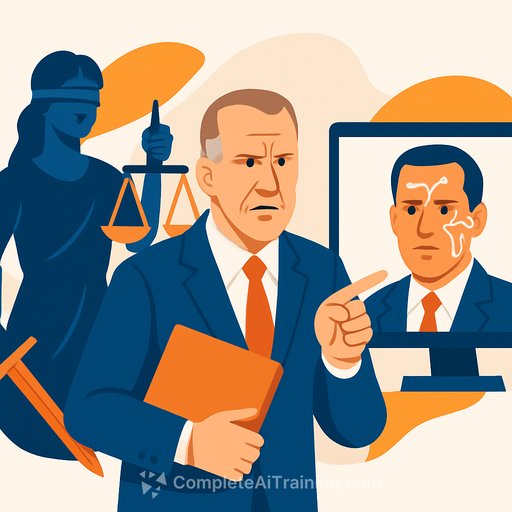An NC Senator Sues Over AI-Manipulated Ad Misusing Her Image and Words
North Carolina State Senator DeAndrea Salvador is taking legal action against Whirlpool and Omnicom for creating a deceptive advertisement that manipulated her image and words using artificial intelligence. The ad, promoting energy-efficient home appliances in Brazil, falsely portrayed Salvador endorsing the products with statements she never made. This case could become a key federal precedent in regulating AI-generated content and deepfake accountability.
The Incident
Earlier this summer, Salvador received an email with a link to an ad targeting low-income communities in São Paulo, Brazil. The video featured Salvador saying, “In low-income communities in São Paulo, the average electricity bill cost represents 30% of their monthly income. This is when energy becomes a burden.” However, Salvador never made this statement. Instead, the AI-generated video repurposed her image and snippets from a 2018 TED Talk, creating a false endorsement for Whirlpool’s subsidiary products.
The ad had won a prestigious Grand Prix award at the Cannes Lions International Festival of Creativity before the manipulation was uncovered. The award was later revoked, and the ad agency issued a public apology. Despite these actions, Salvador has pursued a lawsuit alleging unfair and deceptive trade practices by Whirlpool and Omnicom, the parent company of the agency responsible for the ad.
Legal and Political Impact
Salvador’s lawsuit is among the first of its kind involving an elected official and AI-generated deepfakes used commercially. She emphasizes the importance of setting legal boundaries for AI misuse to prevent similar incidents from affecting others.
“It can happen to anybody and everybody,” Salvador said, highlighting the broader risk of AI manipulation without proper regulation.
Representatives for Whirlpool and Omnicom have not responded to requests for comment.
Senator Salvador’s Background with AI
With a strong background in AI and data analytics, Salvador holds an MBA from the Massachusetts Institute of Technology, focusing on deep learning. She has also contributed to a bipartisan national working group on AI and sponsored multiple bills in the North Carolina legislature aimed at regulating AI. These include proposals to ban deepfakes in political campaigns and to create standards for labeling AI-generated content.
Recently, Governor Josh Stein appointed Salvador to a new bipartisan oversight group on AI within state government, recognizing her expertise and commitment to responsible AI use.
AI in Government and the Need for Regulation
State agencies in North Carolina are adopting AI technologies, such as the state treasurer’s office piloting OpenAI tools. However, legislation to regulate AI remains limited both at the state and federal levels. Salvador’s proposed AI bills have not advanced to hearings, and Congress has even considered a 10-year ban on state-level AI regulations.
This lawsuit adds to a growing number of legal challenges that could influence future AI policies and protections.
Looking Ahead
Salvador hopes her case will raise awareness and create legal safeguards that protect individuals from AI misuse.
“The harm that has occurred to me initially has happened,” she said. “But what I do hope is that this example — both from shedding a light on it and also the legal case — could hopefully protect others.”
Learn More About AI Ethics and Regulation
Your membership also unlocks:






